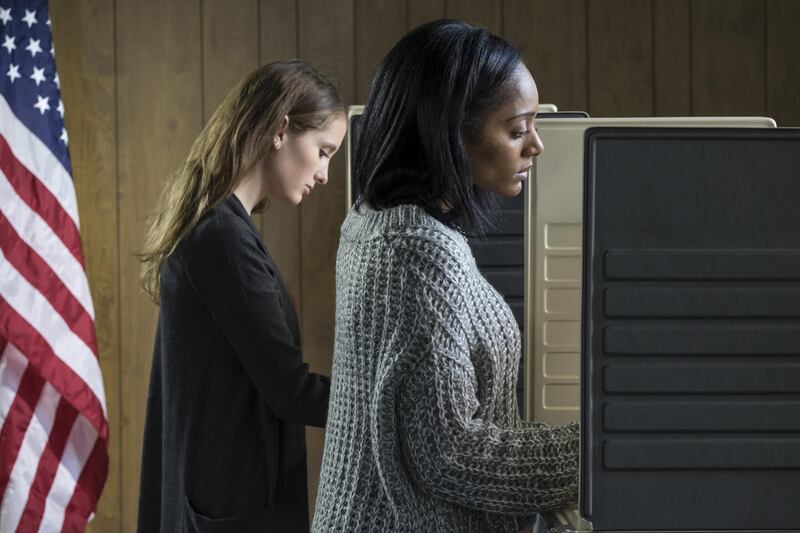Sometimes I don’t vote. It’s nothing I’m proud of. Would a law requiring me to vote, or else pay a small fine, make me a better citizen and help bring us together as a nation? I think the answer is yes.
There are four main arguments against the idea. The first is that requiring people to vote is too coercive. Part of freedom, in this view, is the freedom to abstain from participation in government. But this claim fails to acknowledge the principle that, especially in a democracy, freedom without responsibility is unsustainable. Self-government cannot thrive without certain forms of general participation, such as serving on juries and paying taxes. Voting is one of these forms. It’s a right, but it’s also an obligation.
It’s an obligation we increasingly neglect. In national elections, about 60 percent of eligible U.S. voters go to the polls. For midterm elections, it’s about 40 percent. In 1992, when Bill Clinton was elected president, about 75 percent of the voting population did not vote for him. Such high rates of non-voting undermine the government’s claim to, and the people’s confidence in, basic democratic legitimacy.
The second argument is that legally required voting increases the proportion of uninformed and apathetic voters, thus further degrading the political process. I frown on ignorance as much as anyone. But if ignorance ought to prevent people from participating in politics, many member of Congress would need to resign, many rich people would need to stop making campaign donations, and for all I know, I’d need to stop writing this column. Here in America, in order to form a more perfect Union, we encourage and need everyone to participate, even those of us who aren’t very smart.
Besides, more participation would make us smarter. Writing this column makes me follow the news more carefully. Serving on juries makes jurors more knowledgeable about the law. Why should voting be any different? After all, much research points to the value, for both individuals and society, of regularly participating in pro-social institutions. Our philosophers tell us: If you want to be virtuous, do virtuous things, even if initially you’re not good at it. Our religions tell us: If you want faith, act as if you have faith, even if you don’t, and faith will likely follow. A basic human truth, probably stemming from our inherent sociality, is that doing the activity along with others is the best way to believe in it and become smarter about it.
The third argument against required voting is that we have better ways to increase voter turnout, such as making election days national holidays, creating opt-out rather than opt-in voter registration, and expanding procedures such as same-day registration, vote-by-mail and online voting. But this claim rests on a false contrast. Countries with a legal requirement to vote, such as Australia, are the same countries that typically work hardest to make voting efficient and accessible. Legally required voting is not an alternative to pro-access voting reforms; it’s a pathway to them.
A final argument against voting as a legal duty is that it tends to benefit left-of-center candidates and causes. Some research supports this claim. In the U.S., Republicans under our voluntary system are somewhat more likely to vote than Democrats. Non-voters are disproportionately young, lower-income and minority — groups that currently lean left politically. But my friend Kevin Andrews from Australia, a leader of that country’s main conservative party, told me recently that he’s a firm supporter of required voting, which has been public policy in Australia for more than a century and has strong public support.
More than 90 percent of Australians vote in every election, producing what Andrews calls “greater legitimacy and acceptance.” He says that “the advantage from a practical campaign perspective is that we don’t have to work to get people out to vote, we only have to convince them which candidate to vote for.” Persuading the undecided thus takes the place of motivating already-committed supporters to turn out — a shift in political priorities which, among other things, may help to reduce polarization. Andrews sees little evidence that the required voting has favored the left and reminds me that in Australia “at the federal level conservatives have been in government more often than the Labor party.”
The partisan implications of required voting are not easily predictable. Any party or cause hoping to gain an advantage from the reform would need to respond aggressively and creatively to the larger and more diverse pool of voters. That’s a useful challenge.
Besides, for me at least, the partisan calculations of this issue don’t really matter. The prize worth seeking is the greater health and legitimacy of our democracy. The prize is more unifying participation in the common good, leading to a fuller and more perfect Union.
David Blankenhorn is president of the Institute for American Values. You can follow him on Twitter @Blankenhorn3.

